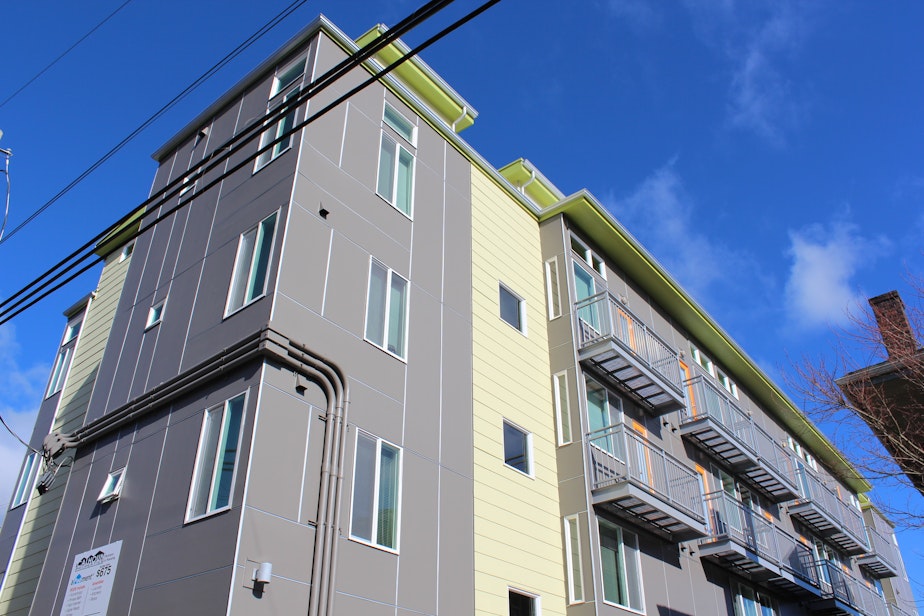Ordinance Limits Rent On Seattle Micro-Housing Units

The Seattle City Council unanimously approved an ordinance on Monday that would limit the rent on some micro-housing units. These “efficiency” apartments are smaller than traditional studios.
This is an adjustment to a program that gives developers a tax break for offering some units to low-income renters. But some developers say this is going too far.
Suzanne Jacobs just moved to Seattle from Boston and lives in one of the newest micro-housing complexes in the city. It’s just off Stone Way North in Fremont. In the past Jacobs has had roommates, so even though her apartment is tiny, it's all hers.
“Yeah, it’s cozy, there’s a little bathroom,” Jacobs said. “I share a stove with the rest of the floor. Pretty much just everything I need. It’s small, but I like it.”
Jacobs pays $800 a month for her apartment, including utilities. As Seattle rents go these days, that’s pretty affordable.
But Jacobs’ building, like dozens of others across Seattle, participates in what’s called the Multifamily Tax Exemption Program. That means building owners don’t have to pay property taxes for 12 years as long as 20 percent of their units meet low-income housing requirements.
The City Council’s new ordinance reduces the rent on 25 percent of these units from around $1000 a month to just over $600 a month.
Matt Horon owns the small business Computer Love on 12th Avenue in Capitol Hill which is next door to a multi-storied micro-housing complex. He said putting a limit on rent makes sense.
“It’s going to look like midtown Manhattan around here if you keep putting up these condos. You get one sort of tenant and that’s the only person that can afford to live here,” Horon said. “As a business owner, sure, I want people that are going to spend money in the neighborhood, but at the same time, people need places to live.”
Smart Growth Seattle director Roger Valdez said this ordinance won’t help low-income renters. He said lowering rents this much reduces the incentive for developers to participate in the tax exemption program, and there will be fewer low-income apartments on the market.
“If they’re going to lower it down to a level of $600 or $700, developers are going to say, 'I’m losing money on this. It’s no longer an incentive,'” Valdez said. “So you’re going to end up losing affordability altogether. Councilmembers are trying to pretend like they’re doing rent control but they’re really not.”
Valdez said the city is damaging a program that is already working pretty well for everybody.
Councilmember Sally Clark, who sponsored the ordinance, said it’s unclear how the new rules will impact the rental market, but the city has to start somewhere. The Council will reevaluate the tax exemption program at the end of the year.
